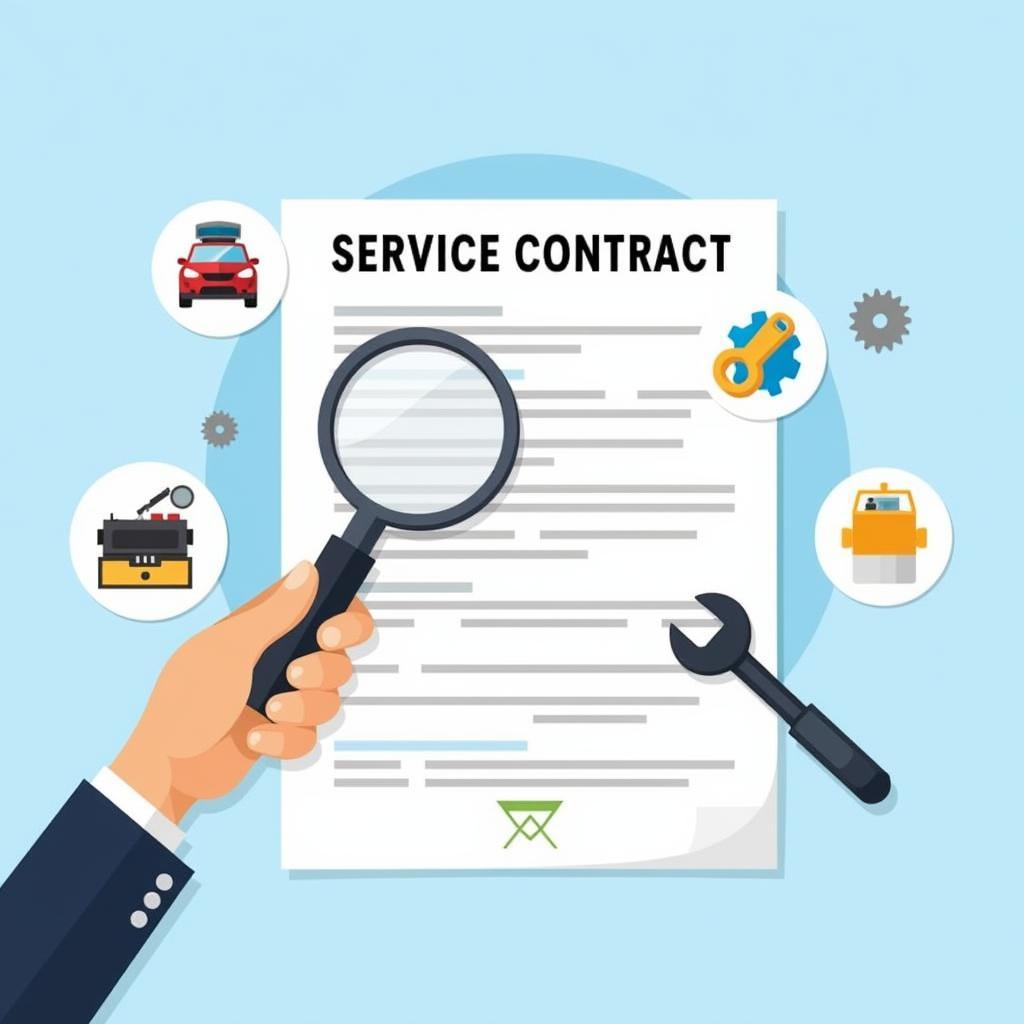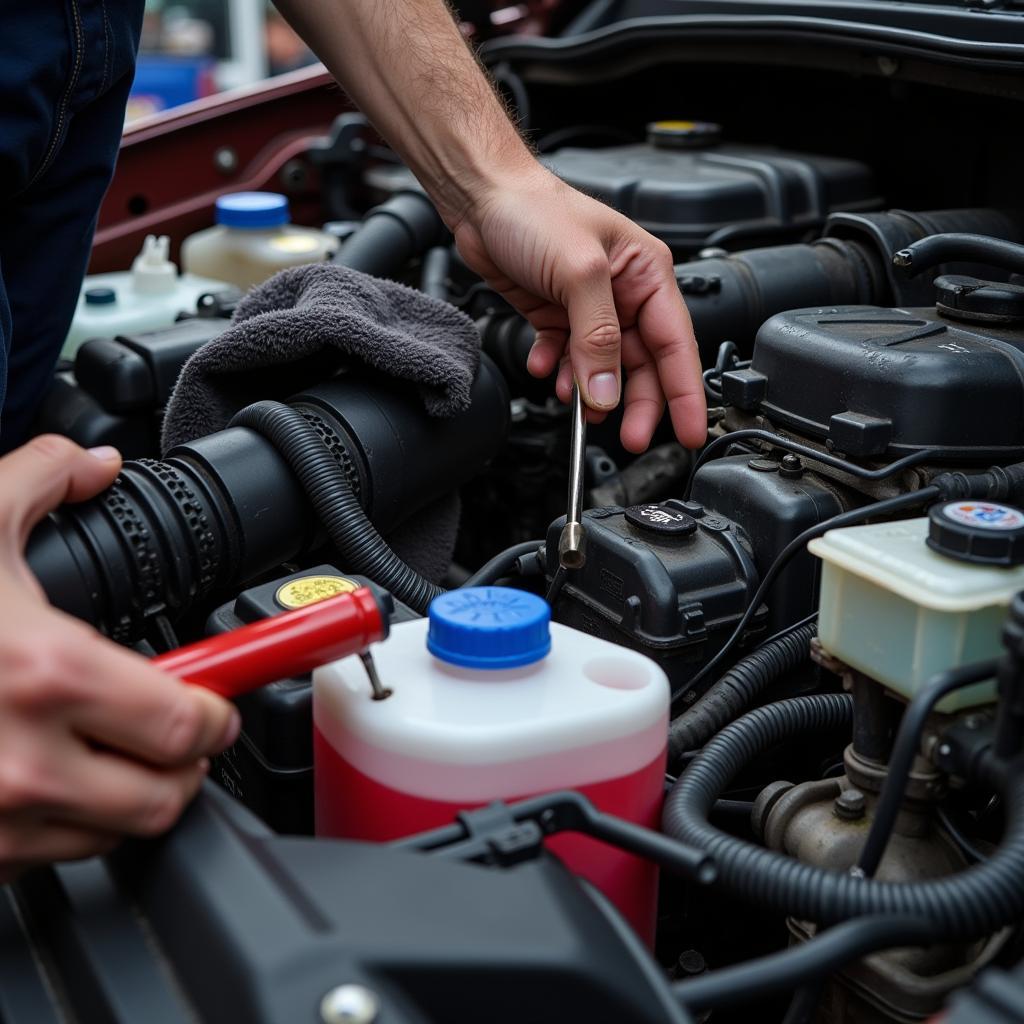Can I Use a Service Contract to Get My Car Serviced?
Car service contracts, often called extended warranties, can be confusing. You want to keep your car in top shape without breaking the bank, but is a service contract the right way to go? This article dives deep into service contracts, helping you understand if they’re a good fit for your car maintenance needs.
Understanding Car Service Contracts
A car service contract is essentially a contract you purchase that covers the cost of certain repairs, beyond your manufacturer’s warranty. Imagine it as an insurance policy for your car’s future maintenance needs. While they can offer peace of mind, knowing you won’t be hit with unexpected repair bills, it’s important to understand what they cover, and more importantly, what they don’t.
 Car service contract illustration
Car service contract illustration
Types of Service Contracts
Not all service contracts are created equal. They come in various forms, each with different coverage levels:
- Powertrain Warranty: This covers the essentials – your engine, transmission, and drive axles. It’s the most basic level of coverage.
- Bumper-to-Bumper Warranty: As the name suggests, this offers comprehensive coverage, encompassing almost every mechanical and electrical component. However, wear-and-tear items are typically excluded.
- Wrap-Around Warranty: This works in conjunction with your existing manufacturer’s warranty, extending coverage for a longer period or mileage.
Deciding If a Service Contract Is Right for You
Before you jump into a service contract, ask yourself these questions:
- What’s your car’s reliability history? Some makes and models are known for their dependability, making a service contract less necessary.
- How much do you drive? If you clock in low mileage annually, an expensive contract might not be worth it.
- Are you comfortable with repair costs? If unexpected car repairs would strain your finances, a service contract can provide a safety net.
Service Contracts vs. Routine Maintenance
It’s crucial to understand that a service contract is not the same as routine maintenance. Regular oil changes, tire rotations, and brake checks are essential for your car’s health and are typically not covered by service contracts.
Tips for Choosing a Car Service Contract
If you’ve decided a service contract is a good fit, here are some tips:
- Read the fine print. Understand the coverage, exclusions, deductibles, and claim process.
- Shop around and compare. Get quotes from different providers, including dealerships and independent companies.
- Negotiate the price. Don’t be afraid to haggle, just like you would for the car itself.
Conclusion
A service contract can be a valuable tool for managing car repair expenses, but it’s not a one-size-fits-all solution. By carefully considering your needs, understanding the terms and conditions, and choosing a reputable provider, you can make an informed decision about whether a service contract is the right choice for you.
Need more guidance on car maintenance or have questions about service contracts? Don’t hesitate to reach out! Contact us via WhatsApp: +1(641)206-8880 or email us at [email protected]. Our team is available 24/7 to assist you.

